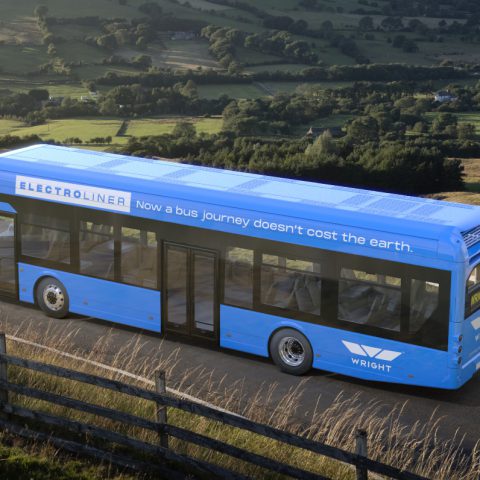First Bus to deploy another 117 Wrightbus-made e-buses thanks to ZEBRA fundings
The British government has announced a £25.3 million investment to rollout an extra 117 zero emission buses in four regions across the country – Yorkshire, Norfolk, Portsmouth and Hampshire. They’ll be manufactured in Northern Ireland by Wrightbus and operated by First Bus. The latter has already ordered 193 vehicles last year, also thanks to ZEBRA […]

The British government has announced a £25.3 million investment to rollout an extra 117 zero emission buses in four regions across the country – Yorkshire, Norfolk, Portsmouth and Hampshire. They’ll be manufactured in Northern Ireland by Wrightbus and operated by First Bus. The latter has already ordered 193 vehicles last year, also thanks to ZEBRA fundings, and is investing £82m, alongside ZEBRA funding of £63m.
The investment comes from the Zero Emission Buses Regional Areas scheme (ZEBRA), which allows local transport authorities to bid for funding for zero emission buses and supporting infrastructure. With this latest funding, the government has invested almost £300 million in up to 1,395 zero emission buses in England, helping to move closer to a net zero transport network.
At the conclusion of the ZEBRA projects, First Bus will have over 600 zero emission buses in their fleet.
The move is part of the government’s wider £3 billion National Bus Strategy to significantly improve bus services, with lower and simpler fares, more integrated ticketing and higher frequencies.
Electric buses for Yorkshire, Norfolk, Portsmouth and Hampshire
Roads Minister Richard Holden said: “Buses are the most popular form of public transport, and these new British-built zero emission buses will support hundreds of high-quality manufacturing jobs in Northern Ireland, grow our economy and help clean up the air in towns and cities across the country. We’re providing an additional £25.3 million to roll out 117 new buses to provide residents in Yorkshire, Norfolk and Portsmouth with better, cleaner and quieter journeys, as we step up a gear to reach net zero faster and level up transport across the country. Zero-emission buses are also often cheaper to run, improving the economics for bus operators. All these additional buses funded through the ZEBRA scheme are battery electric”.
Janette Bell, Managing Director at First Bus said: “We are delighted to be accelerating investment in the electrification of our bus fleet and infrastructure, supported by co-funding from the Department for Transport. As leaders in sustainable mobility, we are fully aligned with the government’s ambitions for a net-zero carbon transport system. We are rapidly transforming our business with zero emission bus fleets and will continue to work closely with central and local government across the UK to deliver our decarbonisation plans”.







